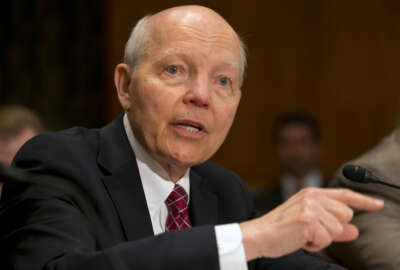
Smaller locality raises likely
White-collar feds in 13 new or expanded locality pay zones are going to get a slight pay adjustment in 2016. While that's good news for them, Senior Correspondent...
In January, some 102,000 white-collar feds will move into 13 new or expanded locality pay zones. That’s the good news.
The less good news is that because of the new people in the locality pay pool, future raises for employees will likely be slightly smaller. More people taking a slice of the pie. A new OPM report notes that “If a percent of the total GS payroll is allocated for locality pay increases, the addition to new areas could result in a smaller amount to allocate for locality pay increases in existing areas.” Locality pay for 13 newly approved locality areas could “result in relatively lower pay increases for employees in existing locality pay areas than they would otherwise receive.”
In addition to the 13 new locality pay zones, some employees now in the lower-paid RUS (rest of U.S. locality pay zone) will be shifted into nearby locality zones.
For example, feds in Kent County, on Maryland’s Eastern Shore will join the Washington-Baltimore locality pay area. It already includes much of Maryland and Northern Virginia, plus some locations in West Virginia and Pennsylvania. Feds in Lancaster, Pennsylvania, will join the Harrisburg-Lebanon locality pay area.
Moving out of RUS status is financial step up for employees going into new or expanded zones. At the same time, it will likely mean smaller locality pay raises in future for people already in an established locality pay area, like Dallas-Fort Worth, Los Angeles, San Francisco, New York City, Boston and Philadelphia.
Workers in locality pay areas generally make more, in some cases a lot more, than their counterparts in RUS. Pay varies greatly between the locality pay zones with feds in several California areas, Houston and other places earning more than their counterparts in metro Washington or Indianapolis.
Determining who was part of a particular locality pay zone was relatively easy, at first. But over time — as more areas asked to be moved out of RUS into their own zone — it got tricky. The President’s Pay Agent and the Office of Personnel Management worked on data that included not only feds that commute long distances (like 50 miles) to a locality zone, and also took into account private sector commuters to an office or agency within an established zone.
The 13 places proposed to get their own locality status next year are Albany-Schenectady; Albuquerue-Santa Fe; Austin-Round Rock; Charlotte-Concord; Colorado Springs; Davenport-Moline; Harrisburg-Lebanon; Kansas City-Overland Park; Laredo; Las Vegas-Henderson; Palm Bay-Melbourne-Titusville; St. Lous-St. Charles-Farmington; and Tuscon-Nogales.
Some internal government studies have indicated that adding more people to existing locality areas will decrease, slightly, any raise they get next year and in future.
The President proposed a 1.3 percent pay raise in January for nonpostal feds, and suggested a 1 percent locality raise which could vary from city to city.
Thanks to locality pay, salaries for feds in the same job, grade and step vary greatly. The pay range for a GS 13 in the RUS locality zone is $83,468 to $108,507. The same person in the Washington-Baltimore area would get $90,823 to $118,069. The pay range in Houston for a GS 13 is $94,106 to $122,336 while in San Francisco-San Jose-Oakland it is $98,815 to $128,457.
So how does your salary compare with your identical twin in other cities? Click here.
Bottom line: The not-very-big January locality pay raise proposed by the President has probably gotten just a little bit smaller.
Nearly Useless Factoid
The 1952 film “It Grows on Trees” tells the story of an American family that discovers two trees in their backyard are growing money. After the media learns of the currency spouting trees, representatives of the IRS and Treasury Department get involved.
Source: Wikipedia
Copyright © 2024 Federal News Network. All rights reserved. This website is not intended for users located within the European Economic Area.
Mike Causey is senior correspondent for Federal News Network and writes his daily Federal Report column on federal employees’ pay, benefits and retirement.
Follow @mcauseyWFED
More from Federal News Radio:





